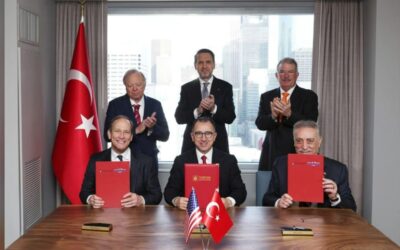Energy Policy Journal
May 2020
Global Impact of the Coronavirus Crisis
Serhat S. Çubukçuoğlu
serhat.cubukcuoglu@alumni.tufts.edu
If one were to take a random guess last year on what on earth would likely shake-up the global economy, few could possibly point to a viral pandemic. In winter 2020, a pathogen known as the Coronavirus version 2019, or Covid-19 for short, transformed global geopolitical landscape within a matter of weeks. Pundits of an impending armed conflict, or a sort of World War III scenario, are perplexed to see what a micron-size organism could do that would render megatons of nuclear warheads redundant. In a single sweep, the infection took a high toll on human life across all sectors and geographies, from Wuhan, China to New York, US, and from airlines to manufacturing. As the world trade came to halt, supply chains broke, and negative public sentiment rose, the so-called pre-eminent centers of influence, supranational bodies, international organizations quickly turned out to be anything but. Rather than bringing countries together around a common cause, as would be expected in a Hollywood-movie about the proverbial alien invasion, the health crisis drove wedges between them further apart.[1] Yet, apocalyptic presuppositions have turned out to be little more than a fantasy. Humanity has survived this pandemic, as it did the Spanish Flu of 1920s, or the much deadlier Black Plague of Middle Ages – so, no: Thankfully, the end of human life has not yet come.
As the worst seems to be behind, the acute question on everyone’s mind then around thought-circles these days is “what is the impact of Covid-19 on the global order?”. “Is the world at an inflexion point of no return, and if so, what should we expect to see next?”. “Is the end of globalization in sight?”. “Is this ‘beginning of the end’ for Western-led capitalist system?”. There is probably no single answer to these, much less a prescriptive list of to-dos and certainly not a one-size-fits-all statement to capture the essence of it at least. With the benefit of hindsight, it’s all too easy to jump to precipitated conclusions on when and how exactly the crisis will end, or whether there will even be such an “end-state” for that matter. The situation presents a complex, multilayered reality that will take years to decode, navigate, and absorb.
Firstly, as the crisis reached the global populace at an unprecedented speed, unlike the Ebola or SARS/MERS of past decades, thanks to high-speed travel, transport, and communication systems, people have been caught off-guard. No single entity had the means to contain the infection, let alone to cure it. The resulting stampede laid bare the fragility of healthcare systems in the so-called developed countries. Even at one point, ironically, there were no patients in worn-torn Yemen, which is a forgotten corner of the world struck by civil war and the worst humanitarian disaster of our century, when Europe and the US were buried under an exponential load of patients. No matter how rich, powerful, and secure a country is, the crisis demonstrated that nothing else matters when it comes to public health: everything else is secondary when life stops, abruptly and frighteningly, on the prospect of an uncurable disease.
Next, perhaps the most acute after-effect is observed in economic and political fall-out from the crisis that left countries on their own resources, often competing with each other for critical supplies, decoupling decades-long unions, alliances, and coalitions. When globalization was at the height of its pace, it was all too comfortable to turn a blind eye to imbalances, inequities, and injustices that we as human-beings implicitly embedded in our everyday lives. Forced-labor, malnutrition, poverty, global warming, climate change were side-issues that most of us regarded as uncomfortable facts of life to sweep aside rather in a self-deceptive way to sooth our internal consciousness. We were all too happy when neoliberalism enabled by global supply chains brought the benefit of high-tech products to our doorstep faster and cheaper, until all of a sudden it just took a microorganism to disrupt the “system” and create havoc. Moral high ground was cannibalized in the name of just-in-time delivery, profiteering, unchecked “forces of the market” in Adam Smith’s words, and greater good of all. As it turned out, unregulated capitalism led humanity to a disaster by its own hands.
Thirdly, the resultant mounting economic pressure due to supply-side, demand-side, and asset-side triple shocks scrambled central bankers and governors to reinstate public confidence and bail-out debt-stricken firms by printing hard-currency, putting money in public pockets, and rolling out stimulus packages to end the contraction. There is a long queue of third-world countries on IMF’s door requesting emergency assistance to help fight Covid-19. Officials claim that the long and arduous path to recovery requires government intervention unseen since post-World War II era. Airlines do not expect return to full business before 2022; food and beverage, hospitality, and entertainment sectors, especially small/local shops, brace for their worst annual performance ever as lockdown measures hit consumption. Simultaneous oil supply glut and diminished oil demand[2] wrecked Gulf monarchies heavily dependent on the commodity export. Resultant budget shortages are patched up by make-shift decisions to raise taxes, to cut back on government mega-projects and subsidies. Unemployment sky-rocketed, forcing many households to abandon all but essential spending and migrant labor with low income from poor countries to relocate back home. FED Chair Jerome Powell warned that global recession could last years with upside hope looking dim. Popular protests are to become a hallmark of everyday politics as authorities ease restrictions. People demand more agile, flexible, speedy government.
Finally, the stage has become ready for a more volatile, unpredictable, chaotic world order. The US-China feud long brewing in the Pacific spilled over into world health issues, trade, and economy more acutely. We are heading full steam into more intensive great-power rivalry reminiscent of the UK and Germany in the post-World War I era. China’s assertive posture in world economy is dealt a severe set-back when consumers realized downsides of locking-in with a single vendor, but its growing role as a global power will continue. Whereas late 1990s, early 2000s were characterized by the rise of neoliberal policies, economic integration, and freedoms, let us expect more economic nationalism, localization, and protectionism in the next decade. Free flow of capital, goods, and labor are seconded to concerns around self-sufficiency, resilience, and security. This is not a multipolar world order where a few powers of equal might compete for influence. Regional, mid-size countries such as Russia, Turkey, and Iran will seek to capitalize on the increasing fragmentation of the world order by asserting leadership in their “backyards”.[3]
The new world order of post-Covid-19 will be a complex conundrum marked by a heightened level of uncertainty. Gone are the days of liberal multinationalism with borderless trade, travel, and investment. It is time to buckle up and be ready for unveiling nationalist agendas, regional power-play of shifting geopolitical priorities, and a global revival of protectionism.
Endnotes
[1] Global Wonks “Webinar: U.S., China, and the Closing Defense Capacity Gap,” Michael Moran, YouTube, May 13, 2020 (accessed May 17, 2020); available from https://www.youtube.com/watch?v=qpgCdgGUwFc&feature=youtu.be.
[2] The New Yorker, “Can the Middle East Recover from the Coronavirus and Collapsing Oil Prices,” Robin Wright, May 8, 2020 (accessed May 18, 2020); available from https://www.newyorker.com/news/our-columnists/can-the-middle-east-recover-from-the-coronavirus-and-collapsing-oil-prices.
[3] The Economist Intelligence Unit, “Geopolitics after Covid-19,” May 2020 (accessed May 20, 2020); available from https://pages.eiu.com/rs/753-RIQ-438/images/geopolitics-after-covid19.pdf.



